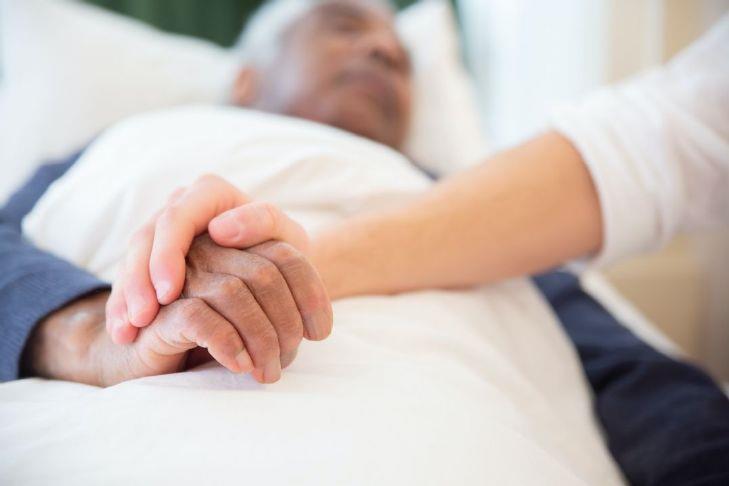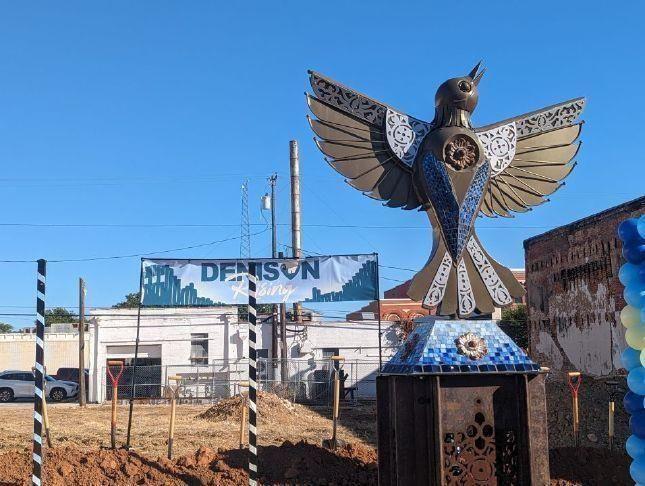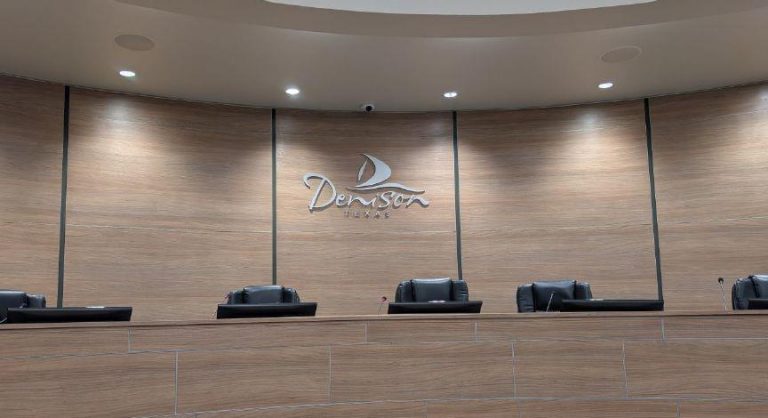Next week, a seemingly dark subject will be brought into the light when the Texoma Area Death And Dying Symposium takes place. The event hosted by the Texoma Council of Governments, Area Agency on Aging of Texoma, and the Sherman Senior Activity Center will include seminars on lasting lessons, navigating grief, funerals and burials, comfort meds, with of life doulas and how families can support patients.
The event will be held from 9 a.m. to 4 p.m. Thursday at the Sherman Municipal Ballroom at 405 N. Rusk Street in Sherman.
People in our community are very interested in educational opportunities,” Sherman Senior Center Coordinator Deena Lowry said Thursday. “That is why we started this free Texoma Area Aging Day that we do twice a year. They are very popular because they are free to the public and people can just come and learn something.”
The speakers include InHome Connect- Community-Based Palliative Care Vice President Monica Cushion, Dr. Randolph Torres who practices internal medicine, Certified Grief Specialist Erica Honore, Certified Geriatric Pharmacist Dr. Veronica Riera Gilley, Attorney Rose Vickery, End of Life Doula Melissa Wood and Funeral Director George Edwards.
“The goal of the symposium is to highlight all of these choices that are available to people and encourage people to use them a lot earlier than they do,” Gilley said.
“It is going to happen to all of us. There are going to be things that are beyond our control, but we can take the reigns and take control of the pieces of control that we do have a say in.”
Each of the presenters at the event are local to the region with the exception of Vickery.
“As a board certified geriatric pharmacist, I am very passionate about thinking about our end-of-life care and that often starts with thinking about care before you get to the end of life,” Gilley said. “So it made a lot of different connections with me for people to have the right resources for the planning of care they will need. That brought me to Melissa. She is an end-of-life doula, someone who helps the families walk through end-of-life decisions. We have heard of birth doulas, people who help through the birth of a child which is something we are all familiar with. Here we have the end-of-life doula.”
Wood described the role of an end-of-life doula.
“We help people navigate the end,” she said. “We help people prepare for the best possible passing that they would want. We help them consider when to stop medication and when to embrace what is coming and when to get family involved with what they want. Some people want to die in a hospital because they do not want their loved ones to have that memory of them in the home. We go through a lot of information to find out what that person’s wishes are at the end of their life.”
Lowry, Gilley and Wood agreed that quality of life is very important to the people they speak and work with.
“One of the things we do is look at the list of medications and we talk about the goals of care and what things may be helping and what may be hurting,” Gilley said. “We focus on quality over quantity. I think that is the idea that we really want to come back to: How can we help you choose quality of life and what services can be utilized to help maximize the quality of your life? Know that you do not have to be on a long list of 40 medications.
“And it is not giving up. That is a stigma that we are trying to work through. Accepting hospice care and palliative care is not giving up. It is saying you are accepting quality over quantity.”
Based on her experience working with patients in the hospital and the passing of her grandparents has helped shape her view of the ways in which people can make end-of-life care and decisions.
“I am in this space because I have had really positive experiences with losing my grandparents,” Gilley said. “Because of the choices they made and because they were so clear with their wishes and making that known to us, it was a gift to us as the family members. I did not see that working in the hospitals. I saw a lot of fear and confusion and people making reacting instead of responding in an emergency situation. I realized how lucky I am that my experiences with death have been such positive ones, feeling welcomed and everyone was informed with the plan and being on the same page. I realized that is not the way it happens with most people in most families surrounding death. When I talk to a lot of people I hear about a lot of traumatic experiences surrounding death, and I did not share that. I want people to know with planning and conversations, we can have better end of life experiences not just for the one who is passing but for their families who will be here after them.”
Wood’s experiences were more typical.
“We have heard before, ‘I do not want to go through want my loved one went through,'” Wood said. “But that is why I am in this field. I do not want to go through what either of my parents went through. So, looking at that and knowing we have our choices and our own autonomy and have ideas about what that looks like is important. But, we also have questions. That is why we are having this event so people know who to ask these questions.”
Some of those questions include: why are our care providers trying to kill our loved one by having them on pain meds and what can be done to hasten the death experience or end the suffering?
“People at the event are going to learn so many different aspects of end-of-life care,” Gilley said. “They are going to learn about hospice. They are going to hear about palliative care and what is the difference between the two. We are going to hear from a physician who can tell what the body is going through as it is losing its capacity to hold life. We are going to hear about the process of preparing a body from someone who embalms. People have a choice in how their body is handled after they pass away. They do not have to go to a funeral home, get embalmed and placed in a wooden box. They do not have to get cremated. You have a say in that. People do not know that.”
Wood also said that time and the use of time becomes more important as people begin to prepare for the hard decisions.
“The quicker you get on board with the idea that the end of life is coming whether it is next year or 40 years from now is important,” she said. “We spend more time planning our vacations and planning retirement and weddings and planning all of these things. They are really critically important to life, but people do not spend time planning end of life. That is critical. That means you can either have a really good experience or a not good experience.”



